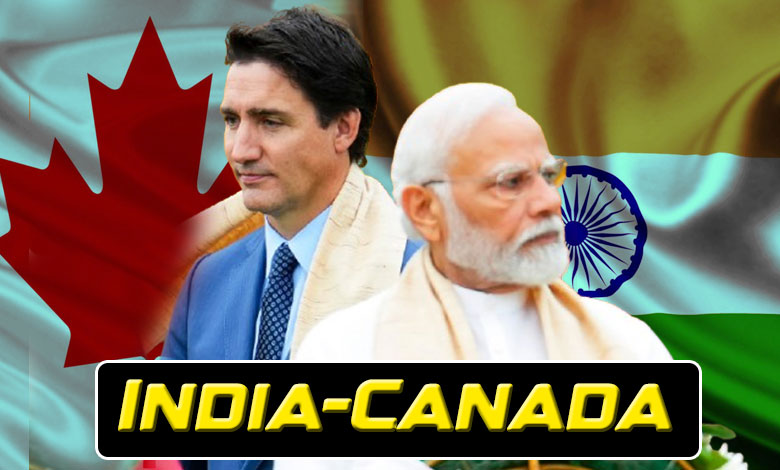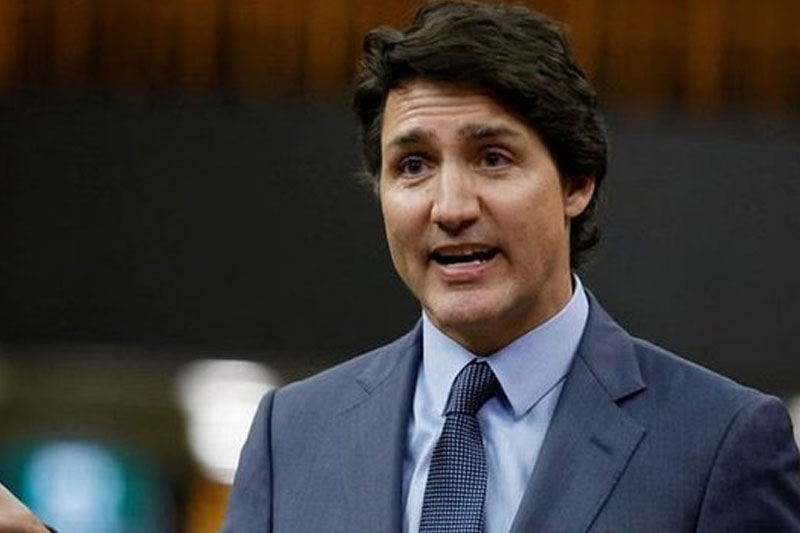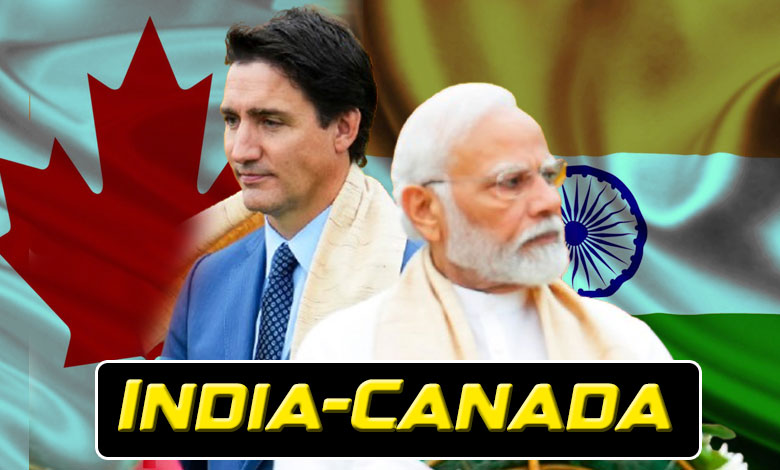India-Canada Relations: Justin Trudeau to Resign Soon: How His Resignation Might Shape Two Countries
Justin Trudeau is expected to resign soon as Liberal Party leader. Explore how his resignation could impact the already strained India-Canada relations, with potential shifts in diplomatic, trade, and immigration policies.

Justin Trudeau is expected to resign soon as Liberal Party leader. Explore how his resignation could impact the already strained India-Canada relations, with potential shifts in diplomatic, trade, and immigration policies.
Ottawa: Canadian Prime Minister Justin Trudeau is reportedly set to resign from his position as the leader of the Liberal Party on Monday, according to a report by The Globe and Mail, citing anonymous sources within the party. While the exact timing of his resignation remains unclear, insiders suggest it could come before Wednesday’s national caucus meeting. It remains uncertain whether Trudeau, 53, will step down immediately or remain in office as Prime Minister until a successor is appointed.
Table of Contents
Trudeau’s expected resignation comes amidst increasing pressure on his leadership, both domestically and internationally. This move is likely to have a significant impact on the ongoing diplomatic tensions between Canada and India, which have been at a standstill since Trudeau’s allegations in 2023 against the Indian government regarding the killing of Khalistani activist Hardeep Singh Nijjar. Trudeau accused India of being involved in the murder, a claim that India has strongly denied, calling the allegations baseless and accusing Canada of interfering in its internal affairs.
Impact on Canada-India Relations
Trudeau’s potential resignation could lead to a major shift in Canada’s relationship with India, depending on who takes over as leader of the Liberal Party, or if the Conservatives come to power.
If the Liberals Stay in Power
If a new leader within the Liberal Party assumes office, many of Trudeau’s policies, including his stance on India, would likely remain unchanged. This means the diplomatic rift over the Nijjar issue may continue, with no immediate resolution in sight. Trudeau’s strong pro-India position on economic partnerships and geopolitical cooperation might also be upheld, potentially keeping the bilateral tensions in place for the near future.
If the Conservatives Take Over
Should the Conservative Party, led by Pierre Poilievre, gain control, the relationship between Canada and India could take a different direction. Poilievre has been outspoken in his criticism of Trudeau’s handling of Canada-India relations, accusing him of worsening ties. However, Poilievre’s previous actions, such as his controversial decision to pull out of a Diwali event in 2024, drew backlash from Hindu communities in Canada, raising questions about how a Conservative government would approach Canada’s Indian diaspora.
Under Poilievre’s leadership, Canada may focus more on economic and trade relations with India, placing less emphasis on the contentious issue of diaspora politics. This shift could change the course of Canada-India relations, particularly with regard to trade, defense cooperation, and mutual geopolitical interests.
Also Read: HMPV Virus: Schools Shut Down in China Amid Rising Infections of New Human Metapneumovirus
Trade and Economic Relations
Under Trudeau’s leadership, trade between Canada and India has flourished. By the end of 2024, bilateral trade had reached $8.4 billion, with Canada exporting minerals, potash, pulses, and chemicals to India, while importing pharmaceuticals and electronic equipment in return. The Trudeau government has been keen on promoting Canada-India trade, with Canadian Trade Minister Mary Ng emphasizing the government’s commitment to strengthening these ties.
However, a leadership change could affect ongoing trade negotiations, including the Comprehensive Economic Partnership Agreement (CEPA), a framework aimed at expanding bilateral trade. While no retaliatory tariffs have been imposed, a change in leadership could alter the trajectory of these discussions, potentially influencing both economies.

Immigration and the Indian Diaspora
Trudeau’s immigration policies have been a point of contention, particularly with regard to the reduction of fast-track study visa programs for international students. In 2024, Canada cut down the number of international student permits by 35%, a policy that disproportionately affects students from India, the largest source country for international students. Approximately 427,000 Indian students are currently enrolled in Canadian institutions.
Opposition leader Pierre Poilievre has criticized these immigration restrictions and pledged to adopt a more selective immigration policy that prioritizes only the most promising individuals. A shift in government could lead to further changes in Canada’s immigration policy, potentially affecting the Indian student community and the broader Indian diaspora in Canada.
What’s Next for Canada-India Relations?
The resignation of Justin Trudeau as Liberal Party leader could usher in a new era for Canada’s political landscape. As the balance of power shifts between the Liberals and Conservatives, the future of Canada-India relations will depend heavily on the approach of the next leader.
While the diplomatic rift between Canada and India remains unresolved, the leadership transition in Canada could either ease tensions or exacerbate them. With both nations closely watching, Trudeau’s impending resignation will likely set the stage for the next phase in this complex and evolving diplomatic relationship.

